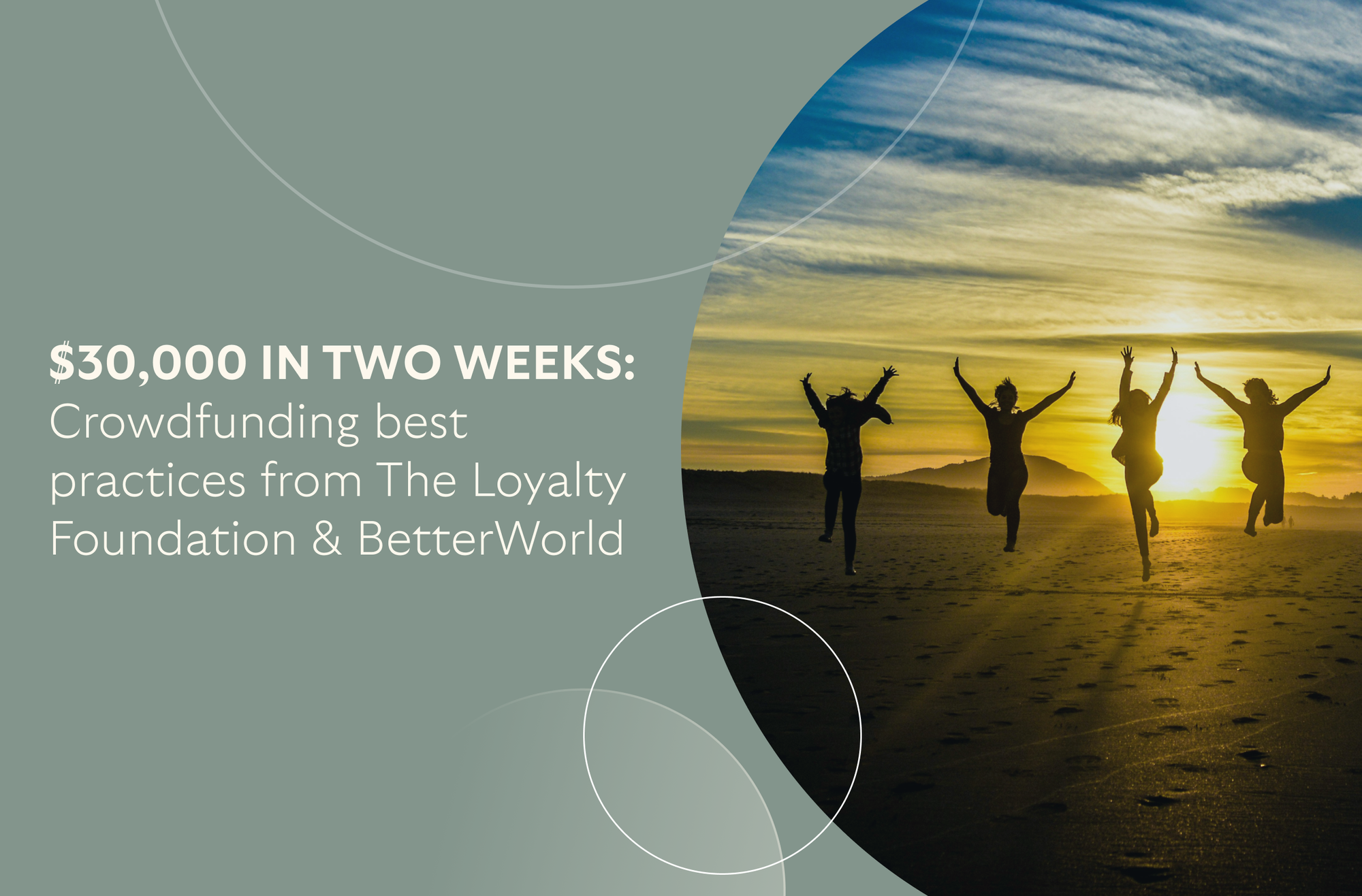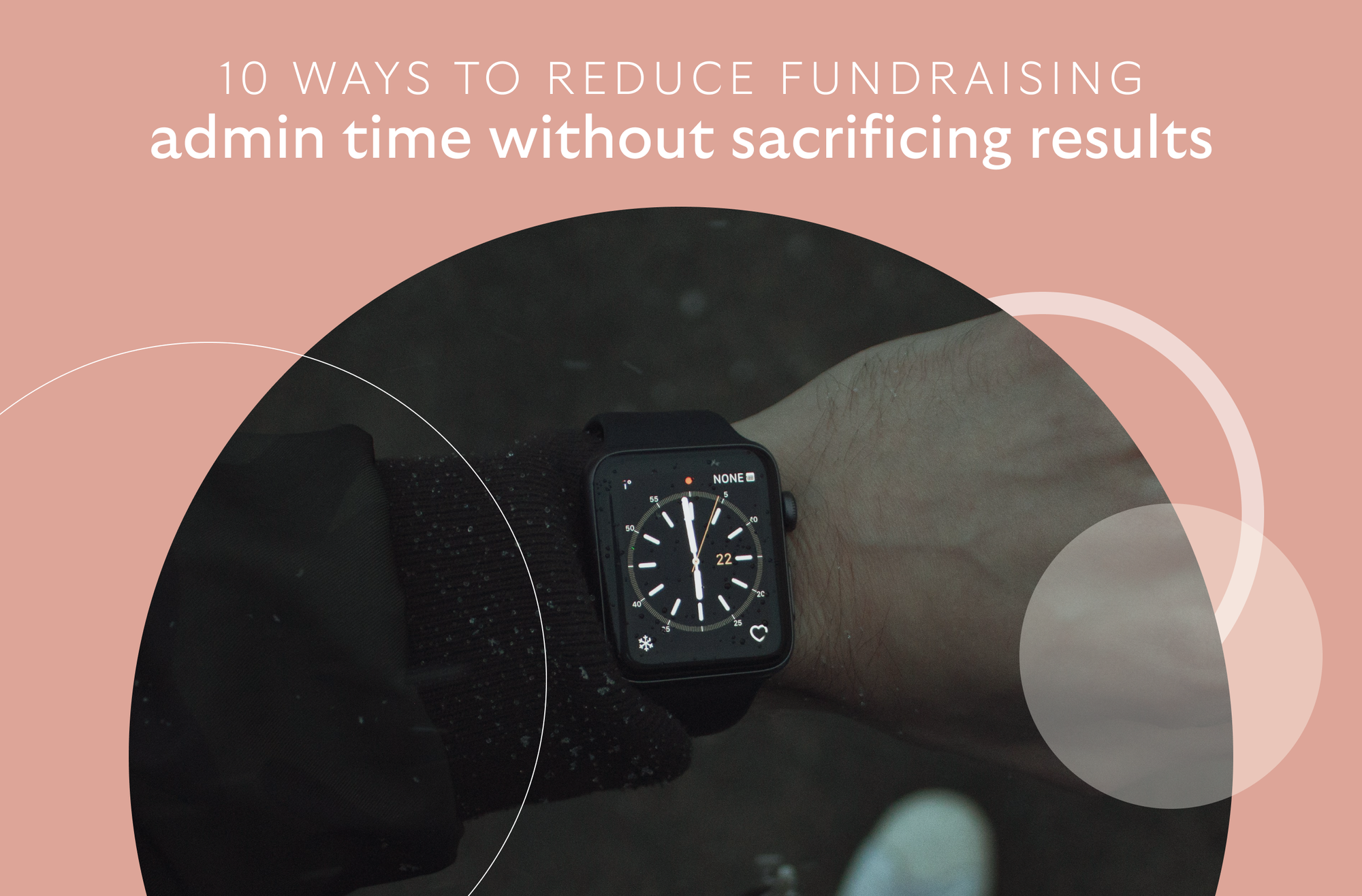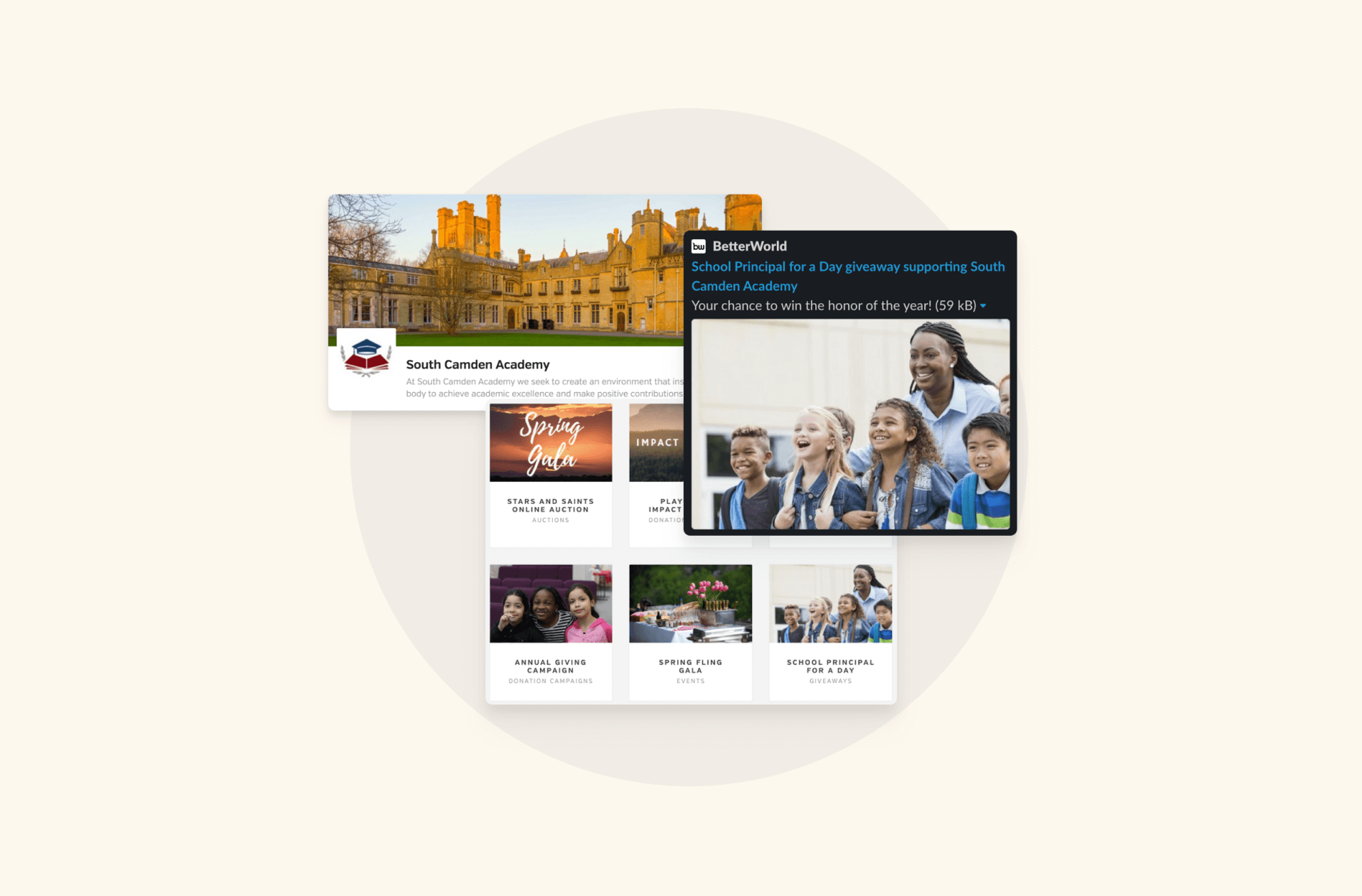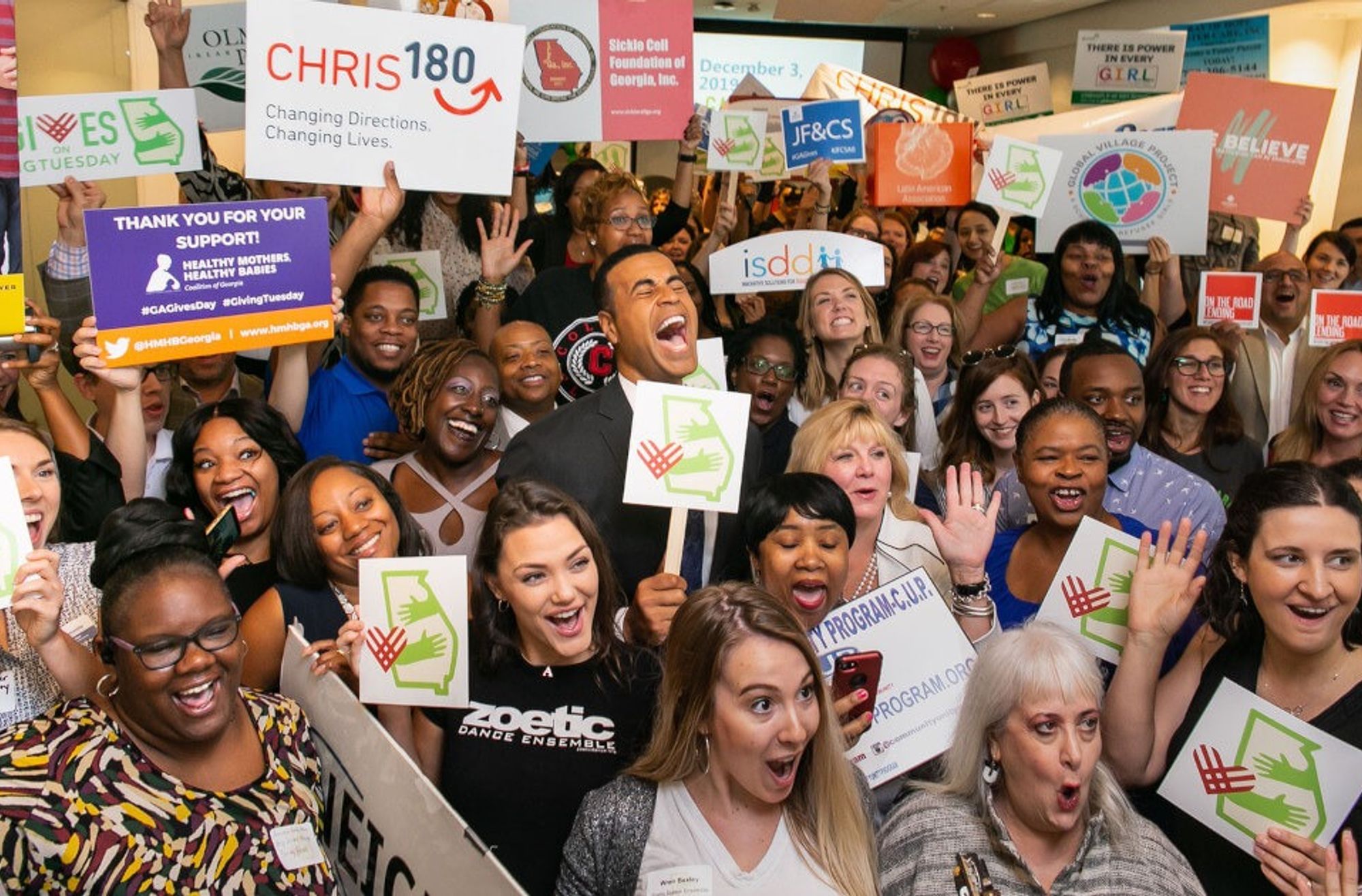Mobile Check-In — easily track and check in donors into any event from any device
Keep your bidders coming back with optional outbid notifications via text
Raise additional funds for your event by displaying sponsors on your online pages
Downloadable table cards with short-links & QR codes to make it easy to bid
10 Tips for Writing an Unforgettable Gala Event Speech
By Whit Hunter

Organizing a gala event isn't a hassle; the venue can be booked, catering can be decided, and guests can be invited easily. It's the speech that you have to worry about. No matter what kind of event the gala is, speaking in front of a hall full of people can scare the biggest orators.
You need to analyze what appropriate phrases you can use and decide how to make the big ask.
In the world of fundraisers, initiating the ask is one thing, but sealing the deal is another. Therefore, you must woo the audience during the first five minutes of being on stage.
A lot can go wrong when writing a speech. Therefore, this blog is here to help you write an unforgettable gala event speech that will leave your audience in awe and wanting to donate the second you get off that stage.
#1 Know Your Audience
A fundraising gala event isn't successful without its audience, so understanding and knowing your audience is key to having a better connection with them.
The speech is about the audience, and they will influence the type of information you will share and the stories you tell in your speech. You should know about their beliefs, values, and backgrounds to understand what matters to them.
The more you know, the better you will persuade them to contribute. For example, if the audience has potential donors of corporate workers, you should focus on portraying how well your nonprofit manages its resources to create an impact.
Speakers tend to focus on what they want to say instead of what the audience wants to hear, which can become a pitfall. This is because they are passionate about your mission, but you don't consider who your audience is.
Therefore, take out time and do your research to find out as much as you can about who your audience will be if you want to connect with them.
#2 Define Your Purpose
Before anything else, determine what the purpose of your fundraising gala is. What goals does the fundraiser have? This will help you gather data and information for your speech.
Is the purpose of your gala event to raise money or to gain publicity and create a network? You need to decide how much money this fundraiser plans to raise.
Many fundraisers have multiple purposes, and figuring out these details can help you understand what you want to tell the audience and how you want to engage with them.
You can increase the chances of your audience's support if you paint a clear picture of the fundraiser’s purpose and goals in their minds. Letting them know how their funds will be used and what positive change they will bring can serve as an excellent motivator for them.
#3 Create an Outline
To stay organized and keep yourself from going off-topic, you can create an outline to help you navigate your speech. This will help you figure out the structure of your speech as well.
Think of it as creating a roadmap for your whole speech or event. This outline should typically include a compelling opening so the audience is drawn in from the very start.
Before creating an outline, analyze how and when you should make your big speech. Timing is important because you do not want to make your speech when the audience is busy engaging or communicating with each other.
According to the event schedule “Wave” by Swaim Strategies, every fundraising gala starts to get slow with the arrival of people, followed by ice breaking and refreshments, and then reaches the peak before the performance.
This peak is the best time to start your speech because the guests are relaxed and focused on entertainment rather than engaging with each other.
Outline your speech to reach three goals: Grab people’s attention, inform them of the cause, and get them to take action.
#4 Start with a Strong Opening
Begin your speech enthusiastically and take the audience on an emotional journey with a strong opening. It's said that humans are likely to remember a piece of information when there’s an emotion attached to it.
Therefore, when you link emotion to a claim or information, your audience will more likely remember it during your speech. This also makes them more likely to be persuaded. Drive their attention by sharing a powerful story or inspiring quotes about your cause.
Here’s an example of a strong opening.
“Good evening! Are you ready for a joyful night? I am! Tonight we gather together in this beautiful, immersive environment designed to surround you with the energy that reverberates throughout our school every day. We feature the talent of our students in tribute to two magnificent alumni. You are all a part of the performance because every one of you creates our community and contributes to our success.
I offer three words: Aspire, Inspire, & Gratitude
Inspire. Who inspires you? What fills you up, provoking a spark, the exhilaration, or provocation of something, someone, who causes you to inhale, holding your breath with wonder?
Aspire. Where do you aim? What is your dream, that yearning direction, that fire in the belly and passion in your heart, which causes you to rise up and soar - to exhale with a “WOW!”
Inspire, Aspire - Two verbs animating the noun of Gratitude.
And that’s where we begin, in gratitude. Our gratitude fills this room in all the projected scenes of this year's activities. Fill the empty frames hanging above your heads with the faces of the thousands of students to come. I hope you will see, hear, and experience an evening that will inspire YOU.” – Dean Allyson Green’s Gala 2017 Speech.
#5 Use Personal Anecdotes
Storytelling is important when you want to stir up the audience's emotions and make them want to make a change with their support. Include a quick personal anecdote to grab their attention. However, it should be related to the cause of the fundraising gala.
Personal stories are the best because you want to let the audience connect with you. You need to appear as likable as possible so your words motivate and inspire the audience enough to donate.
This is why you should try to become the most relatable person there. This helps a lot because you’re speaking from a place of power, and hearing about your journey is a great way to humanize yourself.
You can talk about a time of failure that taught you a meaningful lesson and humbled you. Every person can relate to making mistakes, and sharing a story like that can let them know how you understand their perspective and cause them to trust you.
In-person events and galas made easy!
#6 Clearly Specify the Ask
Your speech is centered on only one goal: to make the big ask. The speech is useless if you do not invite them to take action. The ask needs to be specific and clear to be meaningful.
If you lose your chance to make the ask, you will leave the audience confused and with an idea of what they should do. Therefore, the best time for asking is now if you've been persuasive and have your audience hooked and emotionally invested.
Be clear and specific while suggesting that they all need to take action. An ideal call-to-action can make your audience act immediately, even before you finish your speech.
Include the following things in your call to action:
- Mention the amount your organization needs to raise.
- Let them know how you would like them to donate, for instance, through text-to-donate, donation box, etc.
- Give an example of how a donation by one individual can solve a problem you want to solve. Such as “A $200 donation from one of you today can keep 6 children in school for another year.”
#7 Keep it Concise
Make sure your speech is no longer than 9 to 10 minutes. A speech that is too long can make your audience impatient and cause them to lose interest. This decreases your chances of getting them to contribute.
A good speech is well structured and has great content but includes a very small number of points. Structure your speech in 4 sections:
- How their donations make a change in a day
- How it changes someone’s life tomorrow.
- How it changes a community’s life in one year.
- How it changes the world in the coming future.
Take first lady Michelle Obama’s speech, for example. She started her speech by greeting everyone and immediately dived into the youth’s enthusiasm for education and how their contributions have helped them.
#8 Use Humor
Make sure to lighten things up by adding a joke here and there. You can crack a joke related to your speech's subject. You can tell a joke that helps you make a point about a story you're trying to tell.
A monotonous speech can make the audience lose attention in intervals and risks the chances of them donating. Therefore, keep the speech interactive and humorous.
#9 End with a Memorable Closing
To make the audience remember you, end the speech with a memorable ending. To end it on a good closing, you could show them a slight scenario of how their support will help shape a better future for the world. You could close the speech with a call to action.
Even if you’re great at giving fundraising speeches and the process of approaching people for money, closing with an ask can still be a challenging task. There is no formula for a perfect closing because it depends on how the donors take in your words.
During the closing, you need to be confident about why your organization needs to raise money because if not, you will have difficulty getting them to contribute. That’s why you intend to inspire them with your closing speech.
People love to be inspired and do something for the world's better future. So, take them on an inspirational journey of people overcoming different obstacles because of donations.
Make them realize how they are making an impact and donating for the greater good. People don’t necessarily donate for themselves; they donate because it makes them feel good and satisfies an emotional need.
Donating makes them feel more significant and connected to their spirituality, so you should aim to inflict those feelings with your closing.
While you might want to use statistics and logic in your closing speech, focus on the emotional aspect of charitable giving because emotional satisfaction is a much more compelling motivator.
#10 Practice, Practice, Practice
When you’re done constructing your speech, you must practice and prepare to avoid any mishaps and nervous breakdowns. Preparing thoroughly will also help you remember and memorize your speech and help you avoid reading it out on the day of the event.
Ensure you’re speaking in a conversational tone instead of a robotic one. To nail that tone, practice in front of a mirror or in front of your team members to gain constructive criticism on your speech.
Conclusion
A well-written speech will greatly impact your audience and immediately cause them to take action. Remember, your speech needs to inspire people so they can act on behalf of your fundraiser’s cause.
Deliver a speech that becomes a core highlight of the gala. The more memorable the speech, the more memorable the gala event, and the more contributions to your organization.
Following the above guidelines can help you deliver a meaningful and compelling speech for your audience. Just speak with such confidence and enthusiasm that your audience is motivated to open their hearts and wallets.
Join BetterWorld, the ultimate online fundraising platform, and amplify the success of your fundraising efforts.

Join 105,000+ amazing nonprofits, organizations, and fundraisers on BetterWorld

Let our FREE fundraising tools help you raise more funds with less effort







